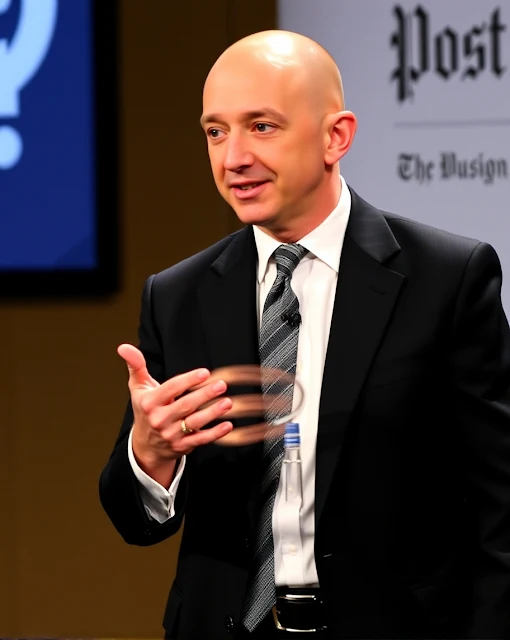Jeff Bezos, owner of The Washington Post, publicly addressed the fallout from his decision to end the paper’s tradition of endorsing presidential candidates, a move which spurred resignations and subscription cancellations. In a rare op-ed published by the Post, Bezos argued that endorsements don’t influence voters but rather fuel perceptions of bias. “Presidential endorsements do nothing to tip the scales of an election,” Bezos, founder of Amazon, wrote. “What they actually do is create a perception of bias—a perception of non-independence. Ending them is a principled decision.”
The controversy has escalated, with three editorial board members resigning and high-profile journalists at the Post publicly criticizing the decision. The paper’s former executive editor, Marty Baron, called it “craven” and “cowardly,” alleging it was intended to avoid alienating former President Donald Trump, a contention denied by Bezos. Sources informed CNN that an endorsement for Vice President Kamala Harris was in development when it was scrapped.
Bezos expressed regret about the timing of the decision so close to the election, admitting, “I wish we had made the change earlier, further from the election and the emotions around it.” He also dismissed speculation that his business interests influenced the decision, despite recent reports of a meeting between Trump and Blue Origin executives, a space company founded by Bezos.
“I would like to be clear that no quid pro quo is at work here,” Bezos wrote, adding that no campaigns or candidates were consulted. He clarified that he had no prior knowledge of the meeting between Trump and Blue Origin CEO Dave Limp, acknowledging that the timing was unfortunate but unconnected to the Post’s editorial choices.
However, Bezos acknowledged the potential “appearance of conflict” stemming from his vast interests across Amazon, Blue Origin, and the Post. He insisted his wealth serves as a “bulwark against intimidation” and emphasized his commitment to safeguarding the Post’s independence.
Following the decision, iconic journalists like Carl Bernstein and Bob Woodward, along with nearly two dozen Post columnists, criticized the move as abandoning the Post’s editorial values. Columnist David Hoffman, a Pulitzer Prize recipient, resigned from the board, citing concerns about “looming autocracy” and refusing to “remain silent.”
Former editor Marty Baron questioned the Post’s timing, arguing, “If the philosophy is that readers can make up their own minds on big issues, then don’t run any editorials.” Baron emphasized that withholding endorsement only 11 days before the election contradicts the Post’s longstanding commitment to public accountability and journalistic integrity.


















0 Comments